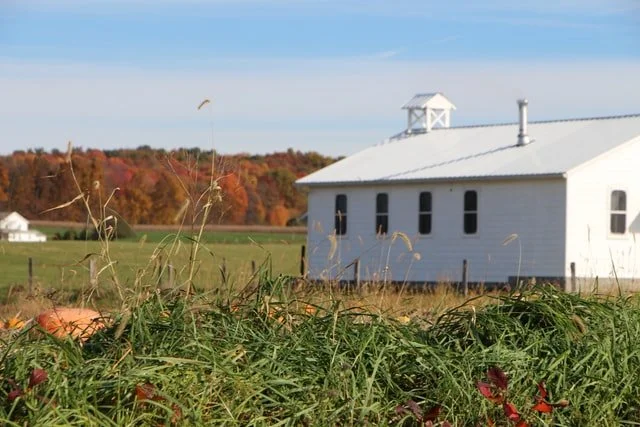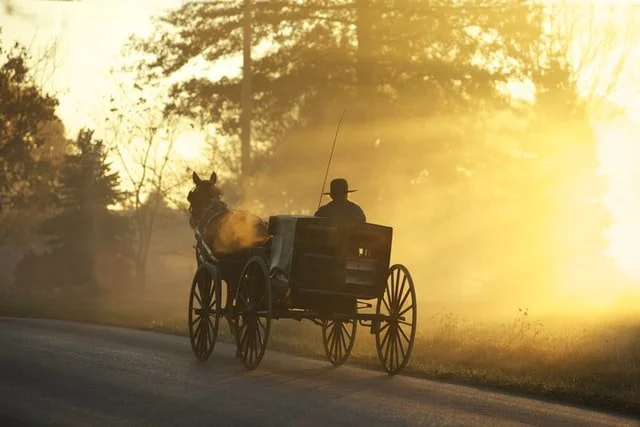In an unthinkable tragedy, we discover an unequaled blessing
By Mark A. Taylor
October 2, 2006 was a fine fall day in Lancaster County, Pennsylvania until gunfire from inside a one-room Amish schoolhouse shattered the peace. Charles Carl Roberts IV, a father aggrieved over the premature death of his own daughter, shot 10 girls, ages 6-13, before turning the gun on himself. When police broke into the school, they found five of the girls dead.
The incident shocked the nation. Of all the school shootings we’ve heard about, somehow this seemed even more tragic because it had happened in this community of simple people known for their quiet, unassuming lifestyle. But the greater significance was soon seen in the reaction of these Amish families toward the mother and father of the disturbed killer.
Remarkable response
“In the midst of their grief over this shocking loss,” said one report, “the Amish community didn’t cast blame, they didn’t point fingers, they didn’t hold a press conference with attorneys at their sides. Instead, they reached out with grace and compassion toward the killer’s family.”
The same day as the shooting, Amish neighbors visited the Roberts family to comfort them. Soon they invited them to the funeral of one of the girls. “And Amish mourners outnumbered the non-Amish at Charles Roberts’s funeral.”
Ten years after the tragedy, Terri Roberts, mother of the shooter, recorded her account of what happened that week. “We had a very private funeral for our son,” she said. “But as we went to the gravesite, we saw 30 to 40 Amish start coming out from around the side of the graveyard, and they surrounded us like a crescent. Love just emanated from them.”
Unimagined relationships
Terri was moved to return that love by serving the shooting survivor whose injuries were most severe. Her name is Rosanna, 15 years old when Terri made her recording. The girl had severe head injuries. She was tube fed and confined to a wheelchair. Terri was spending time with Rosanna once each week. “I read to her, I bathe her, I dry her hair,” she said.
And then she shared a remark from one of the victim’s fathers. “None of us would have ever chosen this,” he said, “but the relationships we have built through it—you can’t put a price on that.”
Beyond grace
Perhaps few of us have received or granted such forgiveness. We may think it can happen only among some spiritually special minority. But this community was simply living out the standard for forgiveness set by Jesus for everyone. They had taken to heart the model prayer of Jesus: “Forgive us our debts, as we also have forgiven our debtors.” They had learned from the story of Jesus about the shortcoming of a servant who would not forgive a small debt even though his much larger debt had been erased (Matthew 18:21-35). They were experiencing the gift promised by the fifth Beatitude, “Blessed are the merciful, for they shall receive mercy.”
It's important to notice how automatic the forgiveness flowed. It was not the result of feeling good or absolving anyone of blame. They simply decided to forgive, because that’s what Jesus wants.
They did more than express grace from a distance, uttering words of forgiveness in front of the horde of reporters that had descended on the rural community.
They acted. They served. In their own grief they identified with the grief of the shooter’s parents. They moved to give what the Roberts family needed, someone to sit with them and their loss, too. They went beyond grace to mercy.
Blessed indeed
In our contentious, litigious world, such mercy is indeed rare. We are right to see it as unnatural and painful. But in this Amish community’s response we can see the truth in what Jesus promised.
Because of their mercy, they experienced priceless relationships. Because of their mercy, they found a place to stand as they took faltering steps toward another day of life. Because of their mercy, they received mercy. They were blessed, blessed indeed.
One interpretation of this Beatitude says the mercy Jesus promised will come to the merciful when they receive mercy at last in the judgment. That’s true, of course. But if we settle for that, we miss the blessings God has in store for us now, the blessings Terri Roberts and her Amish friends experienced because they dared to demonstrate mercy in the most unthinkable circumstance. And I can’t help but wonder what blessing might be awaiting each of us if we would choose mercy for someone close by who so desperately needs it.
Difficult choice
Someone in our lives has wronged us. What do they need from us?
We’re surrounded by criminals, cheats, and takers. What would happen if we stopped condemning them or ignoring them and moved to listen to them, learn from them, and sit with them till together we could discover a better way for them?
Our churches and school boards and government offices are filled with people who are dead wrong about a whole host of issues. Before anything will change, they need mercy, a mercy they may never have experienced. How might God enable us to extend it?
The fact is that forgiveness is almost never deserved. If it were earned, it would demand payment, not mercy. The bridge from my correctness to another’s fault may be the most painful I’ll ever cross. But the mercy I experience on the other side may be the greatest blessing I’ll ever receive.
This is the fifth in a series of posts,
each examining another Beatitude and what it means
for the everyday life of believers like me.
Photos by Brad Weaver and by Randy Fath on Unsplash.
To receive daily posts delivered directly to your inbox, complete the form at the bottom of our home page.
To download a printable version of today’s post, click here.


